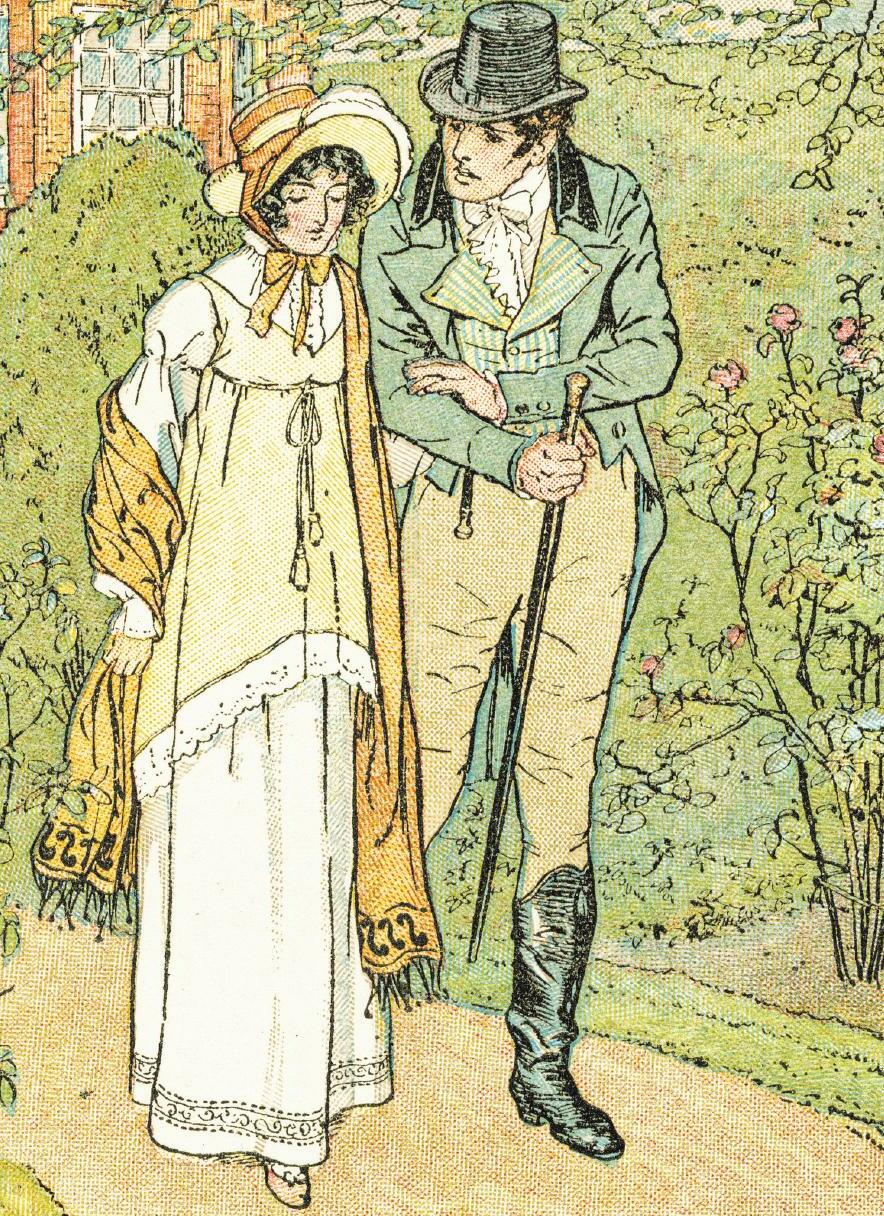
Austenitis can be as insidious as any disease, but whereas a disease merely takes over your body, "Austen's ideas overtake your mind and your expectations."
Or perhaps the real problem is that you've been reading Austen all wrong.
In her examination of Austen's endings-the first such dedicated studyMs. Brodey zooms in on the misunderstandings that surround this iconic novelist. Why, she asks, do we still think of Jane Austen as the queen of romance, despite the many antiromantic maneuvers in her works? The fault is partly one of distance: In the modern Anglophone world, we have been conditioned by our own obsession with relationship goals and the primacy we give to romantic love as a means to self-realization. We assume that Austen must be suffering from the same delusions. Recent film and fictional adaptations of her novels haven't helped: "the ghosts of Elizabeth and Darcy," Ms.
Brodey points out, meaning the combative couple at the center of "Pride and Prejudice" (1813), "haunt contemporary courtship and dating." As proof she supplies a handy appendix to further viewing and reading, from "Steamy Adaptations" ("Bridget Jones's Diary") through "LGBTQ Adaptations" ("Threadbare Morality: The Queer Musings of Miss Mary Bennet") to "Christian-Themed" ("Dating Mr.
Darcy: A Smart Girl's Guide to Sensible Romance," anyone?) Austen's endings aren't as simple as these adaptations might lead us to believe. In fact, they do their best to undercut what Ms. Brodey calls "the inevitability of the marriage plot's happy ending." Ms. Brodey argues that Austen is deeply suspicious of such literary conventions, consciously rejecting the sentimental and gothic modes of her predecessors, Samuel Richardson and Ann Radcliffe, in favor of celebrating "the sufficiency of common, everyday occurrences." Far from delivering reliable romance, Austen acknowledges the high likelihood that in courtship things might not turn out as expected.
この記事は The Wall Street Journal の December 28, 2024 版に掲載されています。
7 日間の Magzter GOLD 無料トライアルを開始して、何千もの厳選されたプレミアム ストーリー、9,000 以上の雑誌や新聞にアクセスしてください。
すでに購読者です ? サインイン
この記事は The Wall Street Journal の December 28, 2024 版に掲載されています。
7 日間の Magzter GOLD 無料トライアルを開始して、何千もの厳選されたプレミアム ストーリー、9,000 以上の雑誌や新聞にアクセスしてください。
すでに購読者です? サインイン